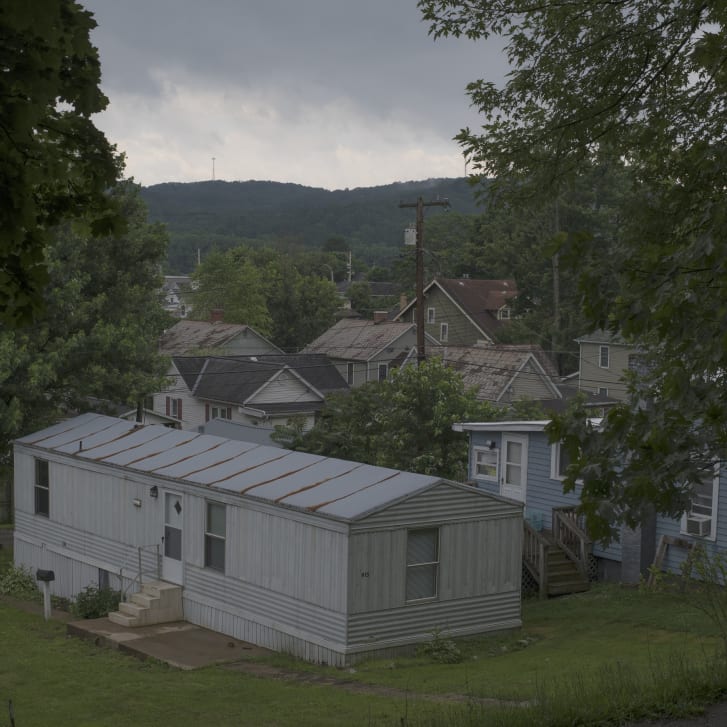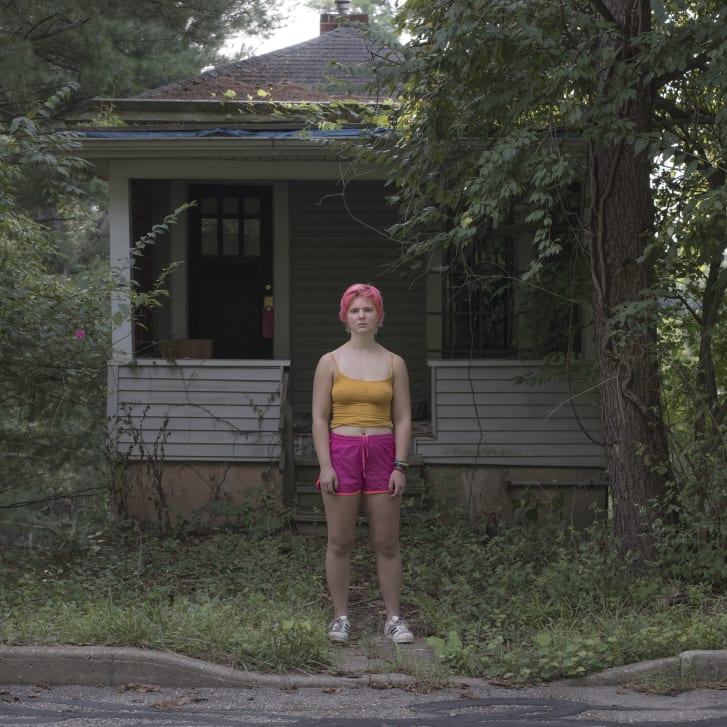In the coal-mining towns of southeastern Ohio, nestled in the Appalachian mountains, photographer Rich-Joseph Facun has worked on a visual study of a region that has been stereotyped for decades.
Appalachia has often been viewed one-dimensionally, saddled in associations related to poverty and opioid use, and deemed "Trump Country" during the 2016 election.
Yet Facun's series on the "Little Cities of Black Diamonds," named for their once-booming coal industry, shows a more nuanced and alluring take on rural Ohio, which became his home.
The forthcoming book, "Black Diamonds," was successfully funded on Kickstarter and will be published in spring 2021 by Fall Line Press.

Facun is a photographer of indigenous Mexican and Filipino descent who grew up in Mississippi and Virginia and put down roots in Ohio after taking a job at Ohio University, where he studied visual communication. During his time there as a student, he lived in a "bubble," he explained over video.
"I really didn't have ... any knowledge of what rural Appalachia was like," he said. "You can drive maybe five or 10 minutes in any direction and be in the country. But I wasn't even aware of that. It wasn't even on my radar."

He returned to the area 15 years later with his wife and children to homestead in the country. They settled in during the 2016 election season, and as then-candidate Donald Trump's rhetoric against Mexico became more inflammatory, Facun began to grow increasingly uneasy as a person of color in a nearly all-White area.
He realized he didn't know his community; it was an unfamiliar feeling given his previous stints working for local newspapers
Despite crossing over many state borders up and down the eastern half of the United States, the popular narrative about Appalachia is that of a deep-red, insular region. Facun was concerned about the sense of growing hostility and polarization in the country and worried it was happening in his own backyard.
"People were pointing the finger at Appalachia saying, 'They're all voting for Trump and it's their fault. It's middle America's fault,' " he said. "I still had not met my neighbors, or any of the surrounding communities. I was just uncertain. Am I safe? Or am I living in this little bubble in the country?"
Encounters with Strangers
Facun's resulting survey of Appalachia doesn't reduce the region to its politics, but instead is an exercise in making connections and understanding his home.
His is aportrait of "community and cultural identity in a polarized political climate," as Facun noted on the book's Kickstarter page. Lush and quiet, "Black Diamonds" shows the beauty of Ohio's foggy, wooded landscapes and a deep sense of intimacy with its residents, despite the fact that they are brief encounters.

In each portrait, a stranger becomes familiar. There's Erik, heavily tattooed and pierced, who Facun passed by on a brisk winter day while leaving his doctor's office. Then there's Kaylee, who had been crowned at the Miss Moonshine pageant during the long-running New Straitsville Moonshine Festival in Perry County.
Many of the images were made on meandering drives, and though not every interaction was positive, Facun overwhelmingly felt a sense of hospitality and warmth.
"I really found a great admiration for the people who are born and bred Appalachian," said Facun. "They have this really amazing resourcefulness about them. And I think that's a very admirable trait."

"Black Diamonds" is also a unique series in the photo world. Countless White photographers have documented communities of color for major publications, photo books, photo awards and personal projects, but aBIPOC (Black, indigenous and people of color)photographer setting out with his camera to explore a predominantly White area is much rarer.
"It's a problem on many levels when history is being documented predominantly by white males," Facun said. "It's a problem (that) our visual history is not being shown through the eyes of a diverse community."
See more work from Rich-Joseph Facun's "Black Diamonds" at facun.com. Follow him on Instagram @facun.
Latest Stories
-
Trump signs proclamation banning travel from 12 countries including Congo, Libya, Sudan
19 minutes -
Parliament ratifies WTO agreement on fisheries subsidies
28 minutes -
GH¢1 Fuel Levy: Downstream has paid enough, show us results – Oil marketers tell government
39 minutes -
GH¢1 levy won’t fix a broken energy system – Dr Riverson Oppong
1 hour -
Musk turns on Republicans – and gives Trump’s big bill a harder path
2 hours -
Putin will seek revenge for Ukraine drone attack, warns Trump
2 hours -
Musk urges Americans to tell lawmakers to ‘kill the bill’
2 hours -
Trump signs proclamation to restrict student visas at Harvard
2 hours -
US appellate judges skeptical of Trump birthright citizenship order
3 hours -
Energy Sector Levy raised GH¢9bn but power crisis persists – AOMCs CEO
3 hours -
NIB declares 3 more suspects wanted in $350m cocaine bust
3 hours -
GCB Bank to launch special ‘Hajj Account’ as part of inclusive financial offerings
4 hours -
Trump administration plans $1,000 fee to fast-track tourist visas, memo says
4 hours -
GH¢1 fuel levy eight times worse than scrapped E-Levy – Bawumia
4 hours -
Interior Ministry warns public against fake security services recruitment
4 hours

